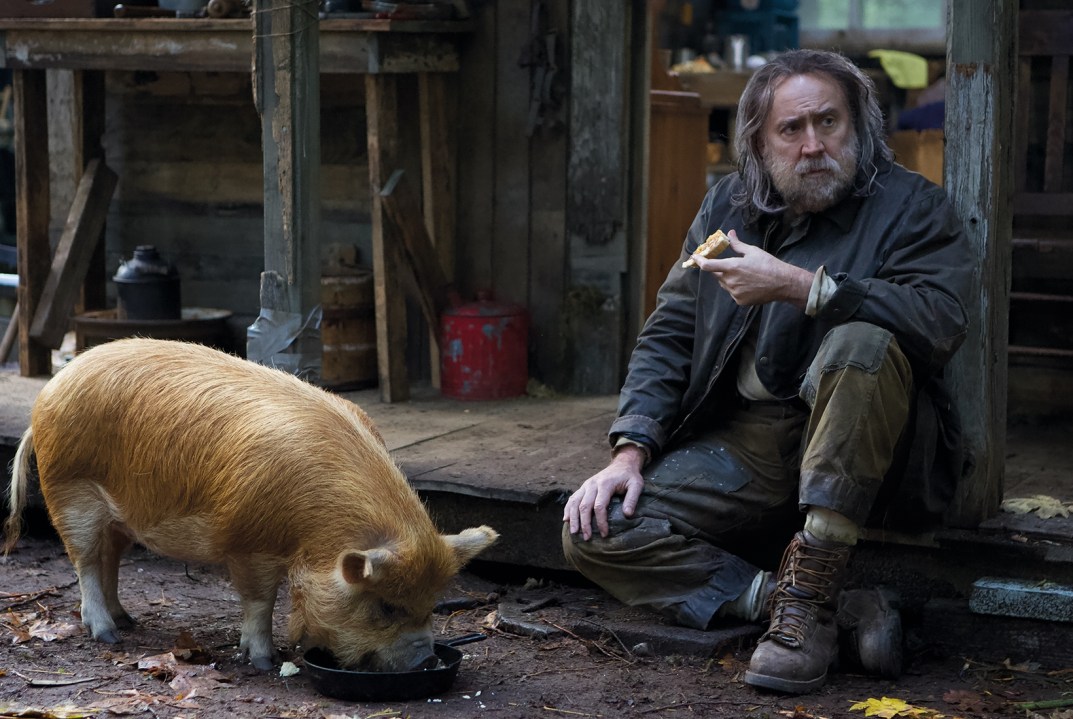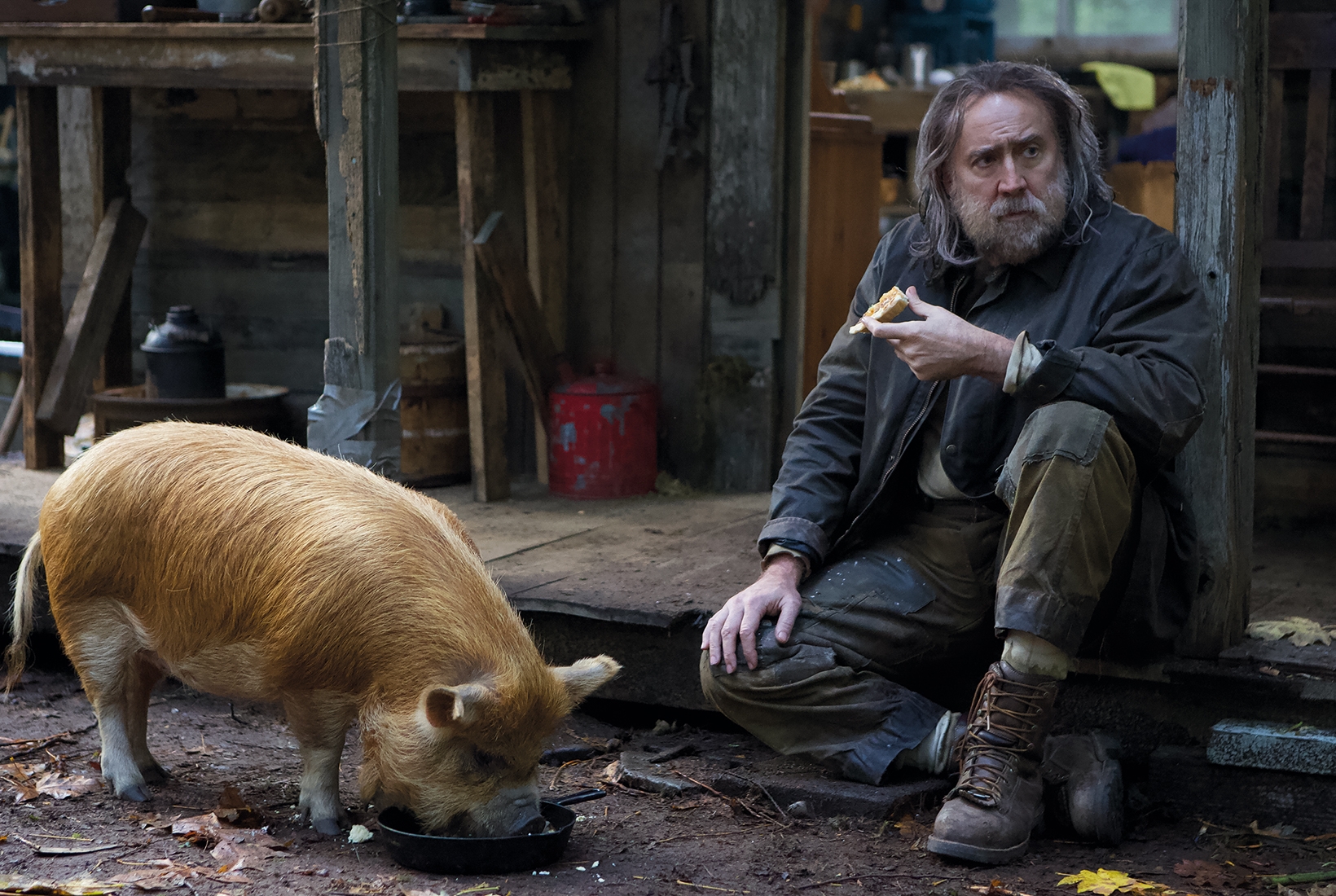What use does a fallen and corrupted world have for a man of integrity? This was not the question I had anticipated walking away with after viewing the new Nicolas Cage indie Pig, but much of the film, from Cage’s intensely quiet and soulful performance to the new ideas it has to offer a very old narrative, was a satisfying surprise.
The film is ultimately a story of revenge, but it plays out in unexpected ways. Cage is Robin Feld, a man living off the grid with only a truffle pig and a recording of his deceased wife for companions and a trade in the luxury food item as an income. But when his cabin is invaded and he is attacked and his pig is abducted, he’s forced to con-front his old life as a chef in Portland to get her back.
Feld’s revenge is an act of generosity, and all the more devastating as a result
Truffles are wild things of great value, in huge demand from luxury diners, but they resist cultivation and therefore control. This becomes the presiding idea of Pig: there are good things in the world but they have been ruined by exploitation, their original meaning replaced by dollar signs. The restaurant industry, then, is a perfect setting for a story of this kind, as the act of feeding another person, which is meant to bring life and comfort and pleasure, has been contaminated by greed and overrun by charlatans.
It is slowly revealed through the story that Feld was once a chef of great renown, but his style of cooking — simple and perfectly executed rather than flashy — is now deemed old-fashioned and what’s hot is deconstructed gimmickry, with a fetish for the hyper-local and the ‘artisan’. It’s all foams, smoke baths, reductions and powders. It all looks great on Instagram.
In one perfect scene, Feld confronts a former protégé whom he fired because he kept overcooking the pasta. His inability to master the basics has not stopped him achieving great success in the pursuit of ‘making the familiar feel foreign’, of turning two scallops into performance art and charging a fortune for it. ‘Everyone loves it,’ he defends himself uselessly under Feld’s knowing stare. Feld sees through the beautiful dining room and the complicated explanations of the food and declares: ‘None of it is real.’ The lesser chef’s manic smile fades as the reality sets in.
The film wobbles a few times as it tries to figure out its relationship to reality, the few surreal flourishes clash with and confuse the more grounded elements. Neither can it escape the misogyny of its sources of inspiration. Dead wives abound; restaurants are named after tragic Greek figures like Eurydice; there seems to be a misguided attempt to connect the exploitation of the natural world with the abuse of women, which is made even more insulting by the fact that the film basically has no (living) women in it. It is Michael Sarnoski’s feature film debut, and one hopes these hiccups can be smoothed out as his career matures.
But the core of the film is strong, even if it does feel like John Wick rebooted into a Babette’s Feast universe. Feld’s revenge against the greedy men who took his pig to help make them rich is not to take their lives but to restore their humanity. He cooks them food that makes them weep, he makes them feel again and see their lives for what they are. His revenge is generosity, and it’s all the more devastating as a result.







Comments